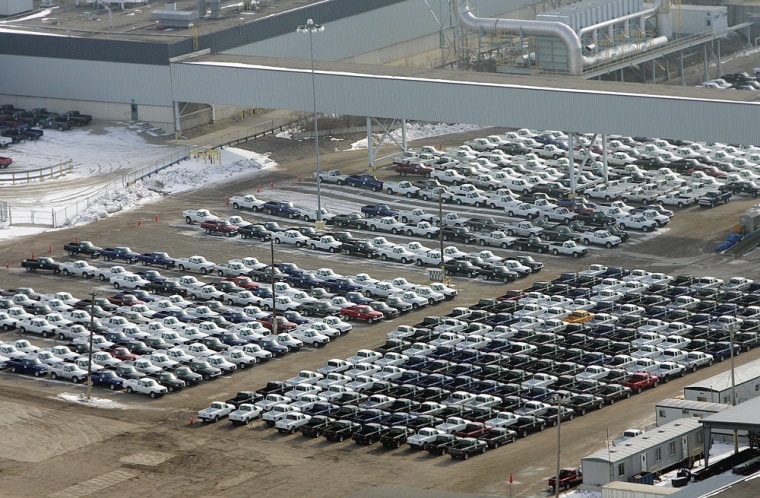Ford Motor Co. said Thursday it will close its F-150 pickup truck assembly plant, once one of its jewels, as it seeks to restore its North American automobile operations to profitability.
The Detroit-based automaker, which employs about 2,400 in Norfolk, said it will also shutter a plant in St. Paul., Minn. Both will be idled in 2008. The Norfolk plant’s closing might also impact 400 employees who work at auto parts facilities nearby.
“It’s all about the dollar signs,” Chris Kimmons, president of United Auto Workers Local 919, said of the Norfolk plant. “Even though we’re the best quality plant in the Ford system, it comes down to the dollar.”
During a shift change at the Norfolk plant, known for high manufacturing wages in the region, several workers said the closing would be devastating.
“People do not buy American products. We all buy foreign cars. We all buy foreign products,” worker Richard White yelled from inside the plant’s fence. White then started crying and wondered aloud how the workers would be able to support their families.
Virginia Gov. Timothy M. Kaine traveled to Ford’s headquarters in February to make personal appeals to the company’s executives. But after meeting with them, he knew it was only a matter of time before the plant was closed.
Working against the plant, he said, was the fact that it produced only one product: the F-150. The other two plants where the truck is assembled, Kansas City and Detroit, also build other vehicles.
Also to the detriment of the plant, Kaine said, was its geography and the difficulty in transporting parts to the facility.
“The suppliers who supply that plant are largely in the Midwest,” Kaine said. “And so when you have two plants in the Midwest and you have one plant on the East Coast, there is a cost to moving supplies a larger distance.”
He said he will try to persuade Ford executives to reverse their decision or delay the closing, though he has little hope those efforts will succeed.
Mark Fields, Ford’s president of The Americas, said in a statement that he was “deeply mindful” of the impact of the closings on employees, families and communities. “Unfortunately, these are necessary steps we must take to move the business forward.”
William F. Mezger, chief economist of the Virginia Employment Commission, said Ford has in the past protected the productive Norfolk plant, which opened in 1925 and once built the Model T. “They have always tended to keep it open and sacrifice plants in other locations,” he said.
Despite the plant’s planned closing, Ford said it would remain “the undisputed leader” in full-size pickup truck sales. In the first quarter, the company sold 199,801 F-Series trucks, up more than 5 percent compared to the year-ago period.
“Norfolk has a wonderful history and reputation, but this is part of the total ’Way Forward’ turnaround strategy,” said Anne Stevens, Ford’s chief operating officer of The Americas.
The St. Paul plant makes the Ranger pickup, which has seen sales decline sharply in recent years. It employs about 1,775 UAW members. The plant opened in 1924.
In January, the nation’s second biggest automaker named five of 14 plants it planned to close and said it would name two more plants later in the year.
In response to record 2004 F-series sales, Ford spent $375 million updating the Norfolk plant to build the redesigned pickups.
